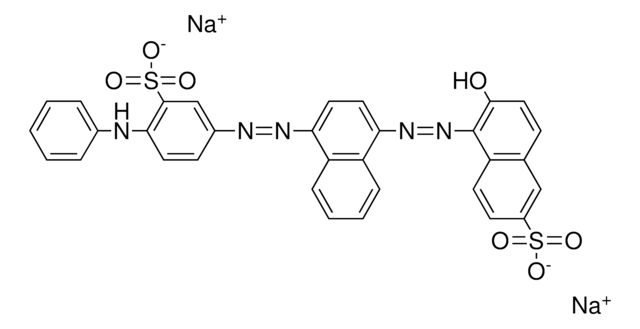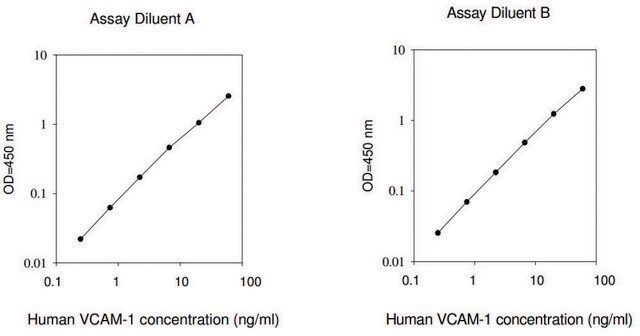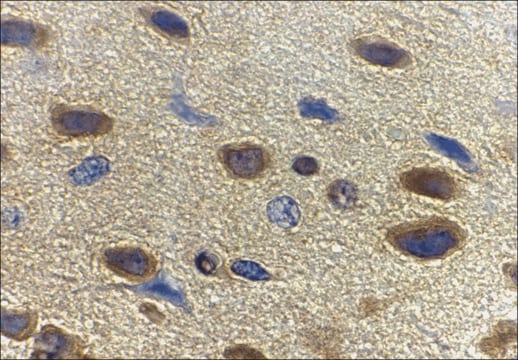SCC286
CUTLL1 Human T-cell Lymphoblastic Lymphoma Cell Line
Human
Se connecterpour consulter vos tarifs contractuels et ceux de votre entreprise/organisme
About This Item
Code UNSPSC :
41106514
Nomenclature NACRES :
NA.45
Produits recommandés
Nom du produit
CUTLL1 Human T-cell Lymphoblastic Lymphoma Cell Line,
Source biologique
human
Conditionnement
vial of >1X10⁶ cells
Fabricant/nom de marque
Millipore
Mode de croissance
N/A
Technique(s)
cell culture | mammalian: suitable
Conditions d'expédition
dry ice
Température de stockage
≤ − 140°C
Application
T-cell acute lymphoblastic lymphoma (T-ALL) is a rare but aggressive form of non-Hodgkin lymphoma, with a high relapse rate and poor long-term survival (1). The majority of T-cell lymphoblastic leukemias and lymphomas harbors activating mutations in the NOTCH1 gene, a key signaling component required for T-cell development (2). Drugs targeting the Notch pathway are thus promising avenues for treatment of T-cell lymphoblastic leukemias. Lack of response of human T-ALL cell lines to Notch inhibitors has hampered the clinical applicability of these models.
CUTLL1 is a human T-cell lymphoblastic lymphoma cell line derived from a relapsed patient that harbors a t(7;9)(q34;q34) chromosomal translocation resulting in expression of a TCRB-NOTCH1 fusion transcript and aberrant Notch signaling (3). CUTLL1 cells demonstrate high sensitivity to gamma-secretase inhibitors, which act on the Notch pathway. CUTLL1 cells express markers of immature T-cells including CD3, CD4, CD8 and TCRαα (3).
Source:
The CUTLL1 cell line was established from pleural effusion of a relapsed 14-year-old male patient suffering from T-cell lymphoblastic lymphoma (2)
References:
1. Cancer J. 2012; 18(5): 432-8.
2. Science 2004; 306(5694): 269-71.
3. Leukemia 2006; 20(7): 1279-87.
CUTLL1 is a human T-cell lymphoblastic lymphoma cell line derived from a relapsed patient that harbors a t(7;9)(q34;q34) chromosomal translocation resulting in expression of a TCRB-NOTCH1 fusion transcript and aberrant Notch signaling (3). CUTLL1 cells demonstrate high sensitivity to gamma-secretase inhibitors, which act on the Notch pathway. CUTLL1 cells express markers of immature T-cells including CD3, CD4, CD8 and TCRαα (3).
Source:
The CUTLL1 cell line was established from pleural effusion of a relapsed 14-year-old male patient suffering from T-cell lymphoblastic lymphoma (2)
References:
1. Cancer J. 2012; 18(5): 432-8.
2. Science 2004; 306(5694): 269-71.
3. Leukemia 2006; 20(7): 1279-87.
Caractéristiques et avantages
The CUTLL1 cell line is a valuable and clinically relevant model for T-cell lymphoblastic lymphoma.
Stockage et stabilité
Store in liquid nitrogen. The cells can be cultured for at least 10 passages after initial thawing without significantly affecting the cell marker expression and functionality.
Autres remarques
This product is intended for sale and sold solely to academic institutions for internal academic research use per the terms of the “Academic Use Agreement” as detailed in the product documentation.
Clause de non-responsabilité
RESEARCH USE ONLY. This product is regulated in France when intended to be used for scientific purposes, including for import and export activities (Article L 1211-1 paragraph 2 of the Public Health Code). The purchaser (i.e. enduser) is required to obtain an import authorization from the France Ministry of Research referred in the Article L1245-5-1 II. of Public Health Code. By ordering this product, you are confirming that you have obtained the proper import authorization.
Unless otherwise stated in our catalog or other company documentation accompanying the product(s), our products are intended for research use only and are not to be used for any other purpose, which includes but is not limited to, unauthorized commercial uses, in vitro diagnostic uses, ex vivo or in vivo therapeutic uses or any type of consumption or application to humans or animals.
Code de la classe de stockage
10 - Combustible liquids
Classe de danger pour l'eau (WGK)
WGK 1
Point d'éclair (°F)
Not applicable
Point d'éclair (°C)
Not applicable
Certificats d'analyse (COA)
Recherchez un Certificats d'analyse (COA) en saisissant le numéro de lot du produit. Les numéros de lot figurent sur l'étiquette du produit après les mots "Lot" ou "Batch".
Déjà en possession de ce produit ?
Retrouvez la documentation relative aux produits que vous avez récemment achetés dans la Bibliothèque de documents.
Notre équipe de scientifiques dispose d'une expérience dans tous les secteurs de la recherche, notamment en sciences de la vie, science des matériaux, synthèse chimique, chromatographie, analyse et dans de nombreux autres domaines..
Contacter notre Service technique



